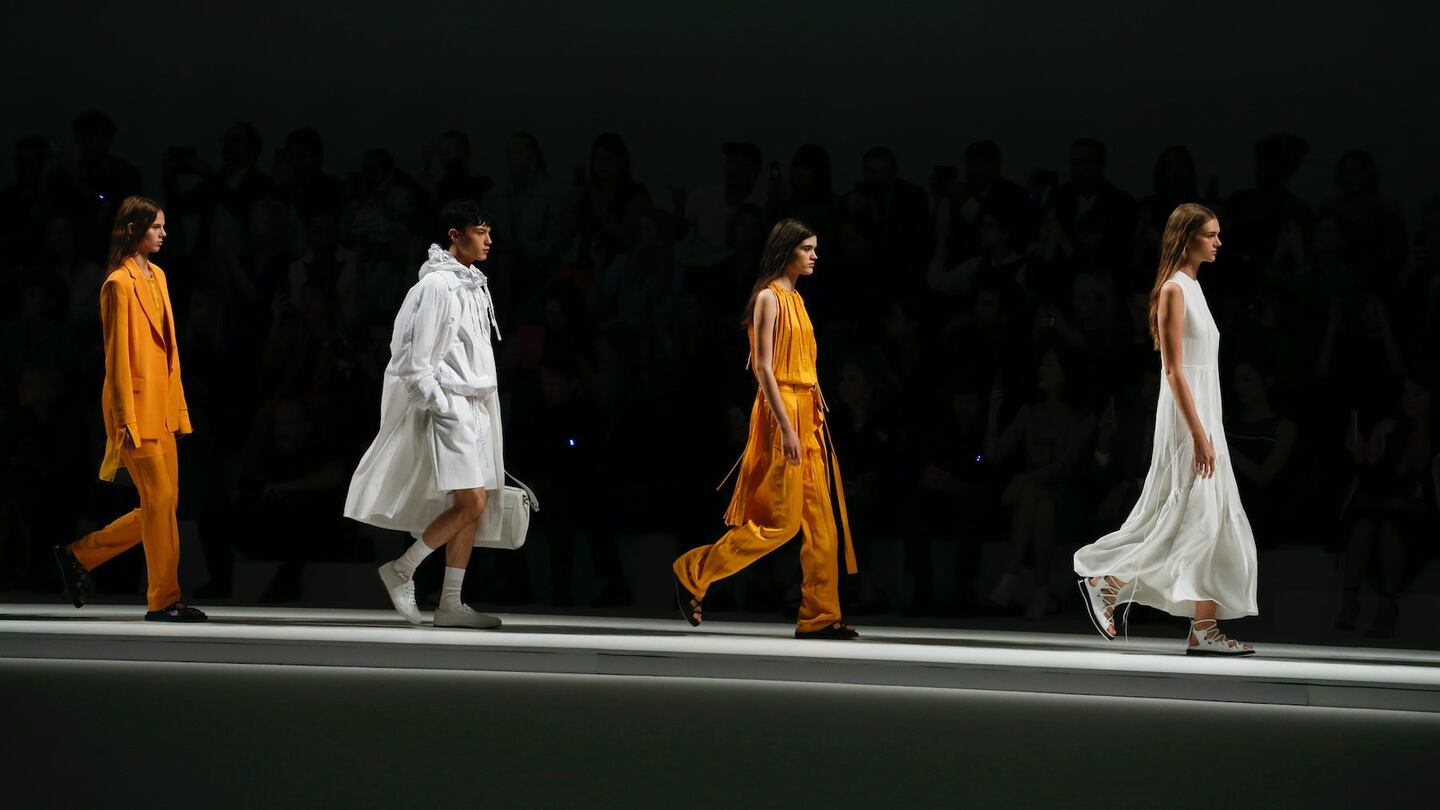
The Business of Fashion
Agenda-setting intelligence, analysis and advice for the global fashion community.

Agenda-setting intelligence, analysis and advice for the global fashion community.

METZINGEN, Germany — Hugo Boss AG said full-year sales and profit will be at the lower end of its guidance range as it struggles to sell its clothes in the US.
Revenue in the second quarter, adjusted for currency swings, declined by 5 percent in the US, Boss said Thursday. The suit-maker cited weak sales to tourists and a high level of discounting by apparel retailers, among other factors.
The shares fell as much as 3.8 percent in early Frankfurt trading, their biggest intraday decline in two months.
The US decline pared companywide revenue growth to 2 percent in the quarter and prompted Boss to say sales and earnings will only reach the lower end of its guided range for the full year.
ADVERTISEMENT
The company had already reported a plunge in first-quarter earnings amid the weakness in the U.S., in a setback for Chief Executive Officer Mark Langer’s turnaround plans.
Sales in Europe and the Asia-Pacific region rose in the second quarter, Boss said, and operating profit should “significantly accelerate” in the second half after rising 3 percent in the latest three months.
By Richard Weiss; editors: Erhard Krasny and Eric Pfanner.
A runway show at corporate headquarters underscored how the brand’s nearly decade-long quest to elevate its image — and prices — is finally paying off.
Mining company Anglo American is considering offloading its storied diamond unit. It won’t be an easy sell.
The deal is expected to help tip the company into profit for the first time and has got some speculating whether Beckham may one day eclipse her husband in money-making potential.
The designer has always been an arch perfectionist, a quality that has been central to his success but which clashes with the demands on creative directors today, writes Imran Amed.